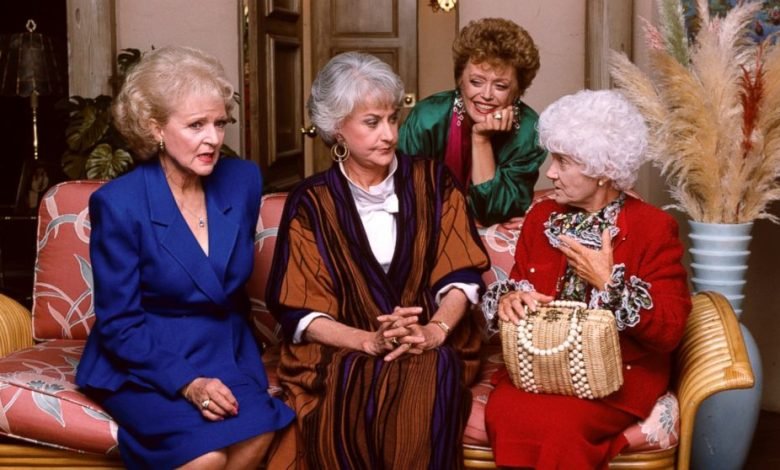Aging Baby Boomers & their Ageless Cultural Impact

by Bill Goodykoontz – Dec. 1, 2012 10:33 PM The Republic | azcentral.com
“I hope when I get old I don’t sit around thinking about it/But I probably will.”
Bruce Springsteen wrote those lyrics to “Glory Days,” about looking back at a time when youth and possibility were still the guiding lights in the lives of the characters he describes. The song was on the “Born in the USA” album, released in 1984. But nearly 30 years later, is there a more perfect description of aging Boomers and their efforts to hold on to the pulse of popular culture? [for the story behind the speedball pitcher and the lyrics of Glory Days, see: https://sixtiessurvivors.com/fitness-videos/the-boss-on-stage-but-saddie-out-in-right/]
And yet Springsteen goes on in the song to describe how a good many people who don’t fit that demographic may feel about it: “Just sitting back trying to recapture/a little of the glory of, well time slips away/and leaves you with nothing mister but/boring stories of glory days.”
Maybe it’s a music thing. Pete Townshend once wrote, “Hope I die before I get old.” It seemed like an admission that everyone’s moment is fleeting, that his generation was taking the mantle, but not for long. Implicit in that statement is that the moment won’t last.
Naturally, almost a half-century later, what’s left of the Who is touring. And so is Springsteen. (Springsteen plays Jobing.com arena on Thursday; the Who play Feb. 6.)
Are Boomers, the post-World War II generation that turned its back on tradition but eventually became the establishment it rejected, making a claim on lasting relevance in popular culture? Or have they had their way so long they simply will not go away?
“I think the boomers are, indeed, demonstrating their staying power and ability to make a lasting statement,” Jeffrey McCall, a professor in the communications department at DePauw University in Indiana, said by e-mail. “I find it interesting that college-age kids still can appreciate performers like Springsteen, The Who, Beach Boys and Beatles.
“I supervise a college radio station, and classic rock from these groups is quite popular. I dare say that today’s bands won’t be of interest to young people in several decades.”
Spoken like a true Boomer. And who knows, that may be the case, although anyone who listens to Beck or Arcade Fire or Radiohead may beg to differ. The reason for staying power goes beyond talent and into that overarching element of culture, pop or otherwise: commerce.
“The ‘oldies but goodies’ have withstood the test of time by being predictable and reliable,” said Phoenix resident Doug Beckwith, who has written and taught extensively about movies and popular culture, in an e-mail. “As long as they can still earn big bucks with actual entertainment or faux nostalgia, why would these boomers go away?”
It doesn’t seem likely that they will anytime soon. They are too valuable as a marketing target. They consume too much to just fade away. With estimates hovering somewhere north of 70 million, they’re simply too big a demographic. (Note: The strict definition of a Boomer is someone born between 1946 and 1964. Some of the people we talk about fall outside those parameters, but they’re included because to so many Boomers, they’re icons, the soundtrack of their youth that never really stopped playing.)
It is important to maintain a distinction between the Boomers who are creating art and popular culture, and the Boomers who merely buy it. Yet both groups enjoy staying power.
“Of course more boomers are going to work longer than any previous generation, because they are healthier, retirement costs more than ever and they think they’re going to live forever,” said David DeLong, the Concord, Mass., author of the books “Lost Knowledge: Confronting the Threat of an Aging Workforce” and “Buddy, Can You Spare a Job? The New Realities of the Job Market for Aging Baby Boomers.”
“Boomers are living longer, healthier lives than their parents, so it’s not surprising many want to keep contributing as long as possible,” DeLong said by e-mail. “The irony is to younger people this behavior seems like the old farts just keep hanging on. It’s all a matter of your perspective.”
That perspective allows for a certain sadness the first time you hear R.E.M. on classic-rock radio. Do Generations X and Y and every one that follows have as good a chance to establish such a firm foothold on society and culture as Boomers have? It may be difficult. On the arts front, there is simply too much media out there for people to keep up with everything.
“The market allows for too many performers to flood the arena into too many niches, and new acts are constantly elbowing their way into the limelight for a fleeting moment,” McCall said. “Big names from the boom time will remain big, but ‘big names’ today are too often just novelties with little real talent or staying power.”
Somewhere Wilco’s Jeff Tweedy’s head just exploded, as did those of his band’s fans. But Beckwith agreed, to a point.
“Today, new talent can be so easily overexposed in traditional and social media that people get tired of them before they’ve developed a lasting fan base. And what about consumers’ demand for ‘new, new, new’ stimulated and fed by companies like Apple that make their money through churn marketing of new versions? How can new talent withstand that kind of scrutiny and pressure? Can anyone seriously believe that Justin Bieber will be touring when he’s 65?
“So oddly enough, society’s emphasis on the New has led us to rely upon the Old, if we really want to get our money’s worth.”
And then there is Springsteen. He has somehow managed to bridge the gap, selling out shows and putting out new music, not just repackaging old hits in different ways (like the Rolling Stones). But his continuing creative relevance is something of an aberration.
“Bruce is probably an exception to the rule,” said Peter Carlin, whose latest book “Bruce,” a biography of Springsteen, was released last month, “which is that Boomer culture remains so prevalent because the boomers themselves are so legion and so self-involved and self-important (we changed the world, maaan) that they can’t imagine a culture that doesn’t revolve around them.” Chatting by Facebook message, Carlin continued: “That’s true of every generation, but the Boomers have the numbers to make it stick.”
It may be tough for everyone outside the demographic to stomach, but for those who fit the Boomer profile, glory days, indeed.





